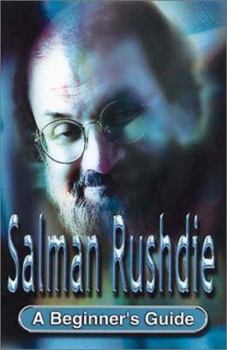Salman Rushdie - A Beginners Guide
This guide introduces the work of controversial writer Salman Rushdie. It examines the novels and other writings to discover how Rushdie's prose and use of popular culture have helped to inaugurate a... This description may be from another edition of this product.
Format:Paperback
Language:English
ISBN:0340802723
ISBN13:9780340802724
Release Date:January 2001
Publisher:Hodder & Stoughton
Length:95 Pages
Weight:0.30 lbs.
Customer Reviews
1 rating
A good first dip into Rushdie's complex work...
Published by Thriftbooks.com User , 16 years ago
Though much of the media hype over "The Satanic Verses" controversy has cooled, Salman Rushdie remains an important millennial literary figure. Regardless of its 2001 publication date, this small introduction explains why. Back then, Rushdie was still officially in hiding, his second collection of essays ("Step Across This Line") was a year off, and two novels ("Shalimar the Clown" and "The Enchantress of Florence") existed only in pre-embryonic form. Regardless, Rushdie's importance has not changed significantly in the past seven years, so this somewhat dated booklet still has much to offer newcomers. Most of the benefit comes from its simple and accessible delineation of Rushdie's themes. Taking an inclusive view, the book covers his novels, non-fiction, and biography. Laced throughout are the themes of personal identity in the face of a changing global culture, migration, post-colonialism, multiculturalism, and imagined versus "real" communities. These topics permeate nearly all of Rushdie's work. Building on this, the book argues that his non-fiction illuminates his fiction, and recommends close reading of "Imaginary Homelands" (then the only non-fiction collection available). It takes a somewhat lukewarm attitude towards his earlier non-fiction work, "The Jaguar Smile." Concerning the fiction, an entire chapter weaves the main themes through the plotlines of every novel from "Grimus" to "Fury." This technique reveals the how and why of Rushdie's writing and why he remains important even though the big news agencies now leave him alone. Just as helpful is an entire chapter devoted to criticisms of Rushdie's work. His place in "English literature" gets assessed here. A suggestion that he's a "writer for prizes" (as opposed to for money or movies) is subtly made, along with the theory that Rushdie wrote the epic "Satanic Verses" in response to the lack of prizes won by the previous novel "Shame." It also predicts that Rushdie's work will likely become more "filmable" in the future. "Fury" was arguably more filmable than "Midnight's Children" or "The Satanic Verses." Though his fiction since 2001 has become shorter and more "concise," whether it's more "filmable" remains to be seen. Someone needs to film it. In addition, a litany of negative viewpoints gets presented. Like any public figure, Rushdie has weathered critique. Some claim his work presents an "Orientalist" viewpoint, or a "Westernized" view of the East packaged too conveniently for western consumption. Some feminists have also taken umbrage with Rushdie's depictions of women. In the end, the book dismisses many of these negative criticisms and claims that Rushdie has successfully expanded "English literature" to encompass issues of "mutations and hybridizations of the new global culture." This book packs a lot into 85-pages. Though here and there it deals with issues in a cursory fashion, it always contains enough information and analysis to whet the appetite. Along with an analys






